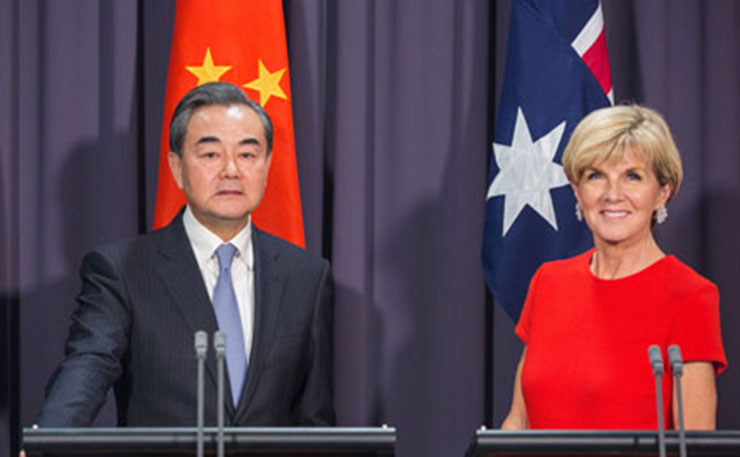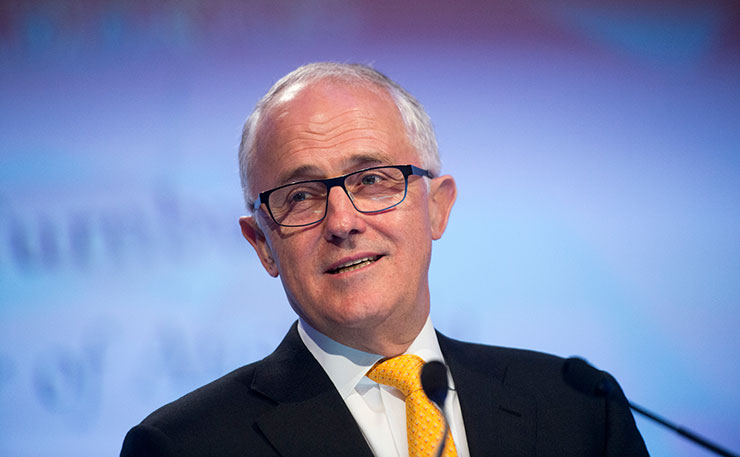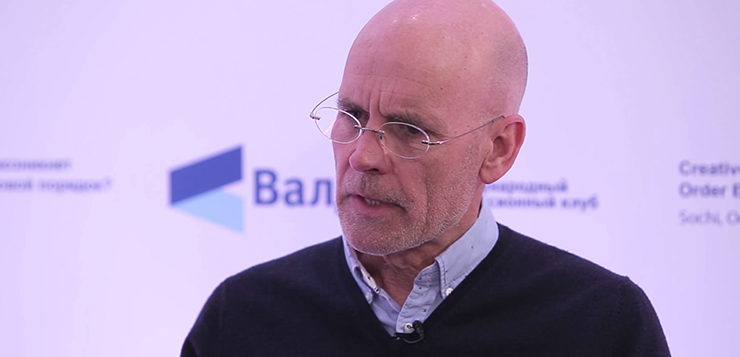The free speech warriors in Australia have been strangely silent about the suppression of a book which criticises China, and local politicians who’ve gotten too close. Michael Brull explains.
The attempts to suppress Clive Hamilton’s new book should be a scandal. You would think the papers would be constantly blaring the issue on their front page, with the usual right-wing think tanks and Murdoch pundits doing the print version of thumping tables and shouting. Yet the response has been oddly subdued.
Many readers may not be aware of the issue, so I will recap. In November last year, one of Australia’s leading publishers, Allen and Unwin, decided to dump the manuscript for a new book by left-wing academic, Clive Hamilton. Hamilton has published over a dozen books, including eight previous ones by Allen and Unwin.

The new book by Hamilton is titled Silent Invasion: How China Is Turning Australia into a Puppet State. A leaked email by Allen and Unwin’s chief executive explained that they decided against publishing the book because of various threats. The “most serious of these threats was the very high chance of a vexatious defamation action against Allen & Unwin, and possibly against you personally as well”. He explained that they faced being targeted by “Beijing’s agents of influence”.
The chief executive admitted that Hamilton’s study was an “extremely significant book”. But due to the legal threats, they were going to impose an indefinite delay on publication. Hamilton, unwilling to wait indefinitely, decided to seek a new publisher.
Early this year, Hamilton lined up Melbourne University Press to publish. They also backed out. Fairfax reported that MUP declined due to the threat of legal action. Furthermore, “It’s understood that at least one senior Melbourne University official raised concerns about Beijing’s ability to dissuade students from attending the university if MUP published the book.”
That is, Hamilton has written a book arguing that the Chinese government is, through various means, infiltrating political parties and the political process. Hamilton argues that the Chinese government’s “supporters and apologists in this country – including business people, political leaders, university administrators, think-tankers, commentators and former prime ministers – occupy powerful positions of influence” in Australia. Two prominent publishers have declined to publish his study, despite his stature as a widely read author, who has published a raft of books.
Hamilton has written critical studies about the influence of coal companies in Australia. He has written critical studies about Australian climate change policy under the Coalition. These hard-hitting critiques have rattled some of the targets of his criticism. Yet it seems like it is harder to criticise the actions of the Chinese government and its supporters than it is to criticise the Coalition and the Murdoch press. This is astounding.
A new publisher has been lined up by Hamilton to publish the book, Hardie Grant. Theoretically, they are going to publish the book in March, unless they also back down. Hardie Grant is a small independent publisher, whose usual categories of books would not include the kind of issues Hamilton’s book will canvas. If they do stand firm, where previous publishers did not, they will deserve considerable respect. It will also be important to see whether they face legal or other repercussions for publishing Hamilton’s book.
It should be noted: Hamilton doesn’t work for the government in sensitive security matters. There’s no suggestion the book discloses top secret files or anything like that. It’s just critical of the Chinese government, and some individuals who he alleges are overly supportive of the Chinese government, and have questionable links to Chinese businesspeople. Those individuals include former politicians, Bob Carr and Andrew Robb.
To try to circumvent the legal bullying, Hamilton submitted the manuscript of his book as an appendix of a submission made to an inquiry held by the Joint Parliamentary Committee on Intelligence and Security. As they have received the text of the book, they can publish it. This would grant the book parliamentary privilege, to shield Hamilton, journalists and publishers from getting sued.

Committee chair and Liberal MP Andrew Hastie and deputy chair Anthony Byrne from Labor both support publishing the book. Prime Minister Malcolm Turnbull, according to Fairfax, also has no objection to publishing it. However, there is apparently some push-back, from those who oppose shielding the book from legal action.
I don’t know whether Hamilton’s book is good. I don’t know whether he proves his case, and I don’t know much about the underlying issues his book will address. But the suppression of his book from at least two publishers is scandalous and outrageous. It is horrifying that it should be so difficult to publish a book criticising the actions of the Chinese government and its supporters.
Fairfax has covered the issue, and given space to Hamilton to defend his book. But where are all the drum-beaters who couldn’t shut up about the Racial Discrimination Act and its affects on free speech? As usual, missing in action. Nothing has discredited the concept of freedom of speech in Australia like the blatant selectivity at best, and mindless cronyism at worst, of the advocacy by the Coalition, the Murdoch press, and right-wing think tanks.
The difficulty in publishing Hamilton’s book shows, once again, that the real reason there is no meaningful freedom of speech in Australia is because of our onerous defamation laws. Even the threat of defamation has a deeply chilling effect, due to how repressive the laws are.
Anyone who cares about freedom of speech in Australia should be focused on changing our laws. Anyone who claims to care about freedom of speech who doesn’t oppose our defamation laws (or worse, utilises them to suppress criticisms) can safely be disregarded.
Donate To New Matilda
New Matilda is a small, independent media outlet. We survive through reader contributions, and never losing a lawsuit. If you got something from this article, giving something back helps us to continue speaking truth to power. Every little bit counts.




